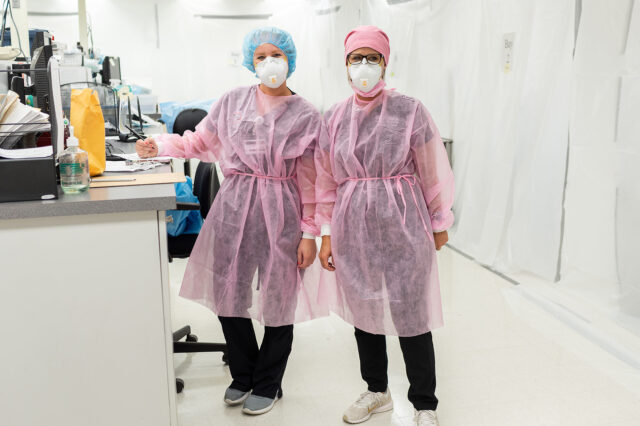National Breastfeeding Month: What does our Baby-Friendly designation mean?
UF Health Shands Hospital has been a Baby-Friendly designated facility since 2015, but what does this mean? This national distinction for breastfeeding support…

Update your location to show providers, locations, and services closest to you.
A contraindication is a specific situation in which a drug, procedure, or surgery should not be used because it may be harmful to the person.
There are two types of contraindications:
Some treatments may cause unwanted or dangerous reactions in people with allergies, high blood pressure, or pregnancy. For example, isotretinoin, a drug used to treat acne, is absolutely contraindicated in pregnancy due to the risk of birth defects. Certain decongestants are contraindicated in people with high blood pressure and should be avoided.
Many medicines should not be used together by the same person. For instance, a person who takes warfarin to thin the blood should not take aspirin, which is also a blood thinner. This is an example of a relative contraindication.
Taber's Medical Dictionary Online website. www.tabers.com/tabersonline. Accessed April 15, 2021.
UF Health Shands Hospital has been a Baby-Friendly designated facility since 2015, but what does this mean? This national distinction for breastfeeding support…

June 3, 2020
As a national study ramps up at University of Florida Health and other sites around the country to test whether hydroxychloroquine, or HCQ, can protect healthy…
Department of Health Outcomes & Biomedical Informatics, +4 more
